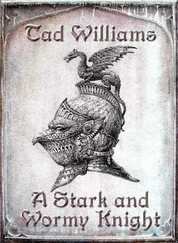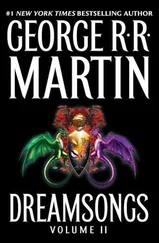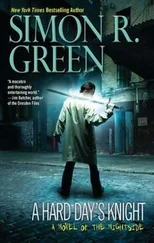“Cath,” he whispers.
She makes a sound in reply, not quite a word, as she drifts into sleep.
“Cath, I am so sorry. I’ll never be able to forgive myself…”
She puts her hand on his cheek, her eyes still closed. It’s not his fault. He didn’t know, she didn’t tell him. But she is too exhausted for this now. She turns over, pulling the duvet up to her chin, breathing in its familiar smell.
“Why didn’t you tell me?” he whispers into her back. She is drained by his need for her to justify herself. It is his need, not hers, and she pretends not to hear him. All she wants is to be able to sleep at last, with the knowledge that finally the truth has broken free.
The next few days and evenings are spent together at the hospital — both of them concentrating on Nick’s recovery. It is coming, they can see it. He is awake and fully conscious. He has started to speak. His words are a little slurred but they will come back. Therapy will sort it out. He still looks confused by his parents. He knows who they are but he looks at them with suspicion. It breaks Catherine’s heart when she sees in his eyes that he doesn’t quite trust her, but he is nowhere near ready for the truth yet, it wouldn’t be fair, and so she pretends she doesn’t notice his reserve and busies herself putting fresh fruit, peeled and cut by her that morning, onto his table. Making sure his cup is full of water. Wiping his hands and face with baby wipes. Trimming his nails. Rubbing cream into his hands and feet. He allows her to do it. He is as weak as a baby. He needs someone to do it.
Catherine is prepared to give him time, but Robert is in a hurry.
“It wasn’t true, Nick, any of it. It was all a lie. Mum loves you. She loves me. It didn’t happen, not like that…”
“Not now.” She stops him. What was he about to say? The man who saved your life raped your mother? She feels a tinge of resentment towards him. This is her story. She has been sole owner of it for years. It is not his to tell, it is hers, and she is the only one who will be able to help Nick understand why she chose never to speak of it.
It is slow, but Nicholas does progress. He is sore from the tube which ran down his throat, but words start coming gradually. His skin is grey and he is thin, but he will make it. He will be fine. Catherine thanks God, well, she thanks someone, and she calls him God but she can’t quite place him, but still she is so grateful that Nicholas has been saved again. And through all the time that Nicholas is progressing, so do Catherine and Robert, slowly working their way back to a place where they can be easy with each other again. Robert wishes Stephen Brigstocke was dead. He wants to punish him for what he has done to his family. It stops him sleeping, this sick, fucked-up man’s malevolence bumping around in his head. But Catherine sleeps well for the first time in ages.
When she thinks of Stephen Brigstocke, it is with sorrow. She had watched him swallow an unbearable truth. He could have fought it, she expected him to call her a liar, but he didn’t. He knew the truth when he saw it and she respects that — it’s not something many people are capable of: denial is so much easier. Most parents would have found what she said about his son, his dead son, inedible. She feels guilty for causing Robert pain — guilty that she allowed him to be told that way. He should have heard it from her, and she has tried to explain to him why she wasn’t able to do it. When she watched Jonathan Brigstocke die she saw him being punished for what he had done to her. He would never be able to do it to anyone else; she would never have to stand up in a court of law and prove her own innocence. She saw it as a sign that she was being given the chance to wipe away something that, she knew, would pollute their lives. And the fact that Nicholas had been spared made her believe that even more.
She was mistaken, she knows now, to think that she could carry it alone, that it wouldn’t affect her. Of course it did. She knows it affected her relationship with Nicholas. But she thought she was protecting them all by preventing it from entering their lives.
“But it did enter our lives… with the book. Why didn’t you tell me then?” He is pleading.
“I don’t know. I wanted to… I tried to…”
He looks at her, waiting, waiting for her to explain how she tried to tell him, but then didn’t.
“There were times when I nearly did. I don’t know, Robert. When you have kept something like that — never said it — never told anyone — it becomes more and more difficult to.” She finds these conversations too painful. They leave her crying, shamed, guilty. And she wants him to say, “Was it me? Did I stop you?” But he doesn’t. He never asks himself that and she never pushes him. There is no fight left in Catherine. She doesn’t challenge Robert and ask him what it was about “Charlotte” that convinced him so easily it was her. She doesn’t tell him how painful it was to see his anger and hatred. Instead she cries and then he apologises. He is sorry for upsetting her. He doesn’t want to do that — it’s the last thing he wants and so he stops asking, leaves her be. And she is relieved. She fears the resentment these conversations arouse in her, the pressure she feels from them.

Nick has been back at home for two weeks. Catherine and Robert had gone together to collect him. It felt like when they’d brought Nick home from hospital as a newborn: they were both so careful around him, new parents, a little uncertain. When he was a baby she had dreaded Robert going back to work; now she can’t wait.
Today is the first day she has had Nick to herself. He is ready. And she tells him she was raped. There was no affair. She didn’t love Jonathan Brigstocke. She didn’t know him. She tells Nick that he was asleep in the next room. She tells him how she feared Jonathan Brigstocke would hurt him. She tells him about the knife. She makes no excuses for why she hasn’t told Nick any of this before. She says she hadn’t told anyone.
“Did he save my life?”
“Yes he did.”
“Why?”
“I don’t know. We’ll never know. Perhaps he felt guilty?” Nick’s face is pale, it has lost its grey pallor, but she can see he is getting tired. They have had lunch and he will want to nap soon but he wants to know everything. He wants to keep talking.
“Guilty?”
“I don’t know, darling.” She pauses, wondering how much more he can take.
“Maybe. We’ll never know why — but he did save your life. That was deliberate — he went in after you — he didn’t have to. He wanted to save you.” She rests a hand on his shoulder and his head droops and she sees a tear fall down his cheek. She reaches over to pull him towards her but he stiffens.
“I’m okay,” he says. She kisses the top of his head, smelling the shampoo from his morning shower. She wants to hold him but he is not ready and she turns away before she begins to cry herself.
“You’re tired,” she says. “You should sleep now. We can talk later.” He nods, getting to his feet, and she stands up too, watching him make his way to the stairs.
“I’m sorry I’ve been a useless mother,” she says.
He turns and shrugs, then shakes his head. No words, but at least he shakes his head.
When Nick goes upstairs, Catherine lies on the sofa and closes her eyes. If onlys fill her head. If only she had called the police the night it had happened. If only she had phoned Robert. He would have come out to be with them, wouldn’t he? But she had been sleepwalking. Nick woke early the next day and came running through to her room and bounced on her bed. She hadn’t slept at all. The night before she had emptied out a travel-size pot of cream and cleaned it out, then she had pressed it against her vagina and pushed his semen down, out of her. The small amount which hadn’t trickled down her leg. A cloudy gob. She screwed on the lid and put it in her washbag. She remembers wondering what would happen if her luggage was checked — if some unsuspecting uniform had stuck his nose into that particular pot of cream. She had taken photographs: the bruise on her thigh, the bite on her neck. The police would want evidence, so she gathered it for them.
Читать дальше













